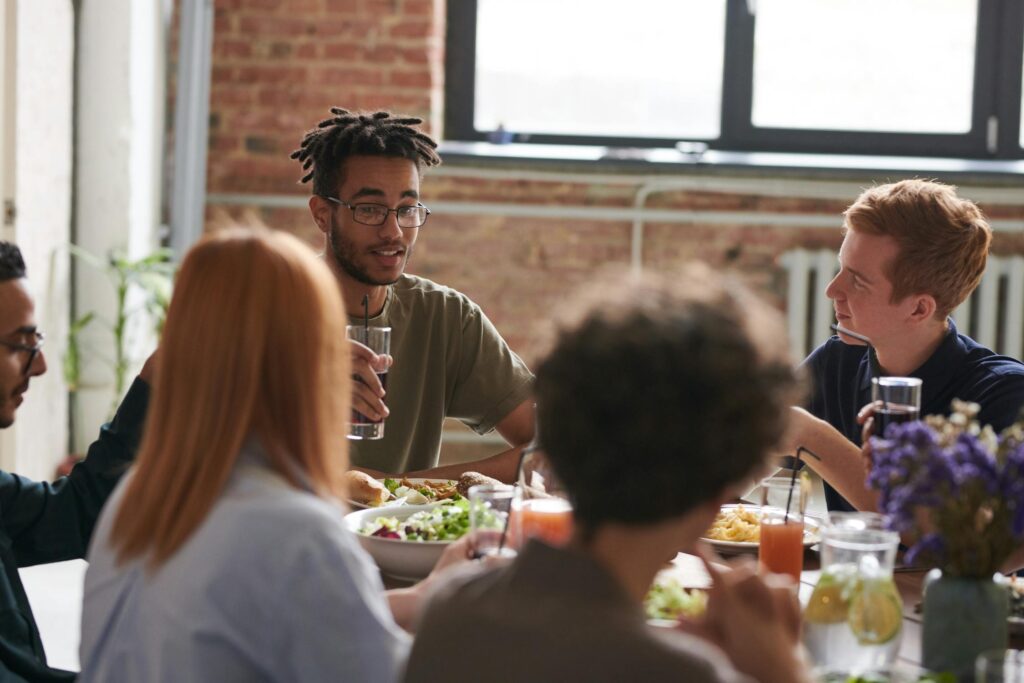Knowing how to adapt to local norms and housing as an international student presents many challenges. Understanding a new culture, language, and social customs can be overwhelming. Finding suitable housing adds another layer of complexity. For international students, fitting into a new environment often requires patience and an open mind. You can do a lot, like learn about local customs and housing practices. That is essential for making a smooth transition. Also, respecting traditions and adapting to new living arrangements helps students integrate more easily into their host country. As an international student, you can easily adapt to local norms and housing by embracing these tips and strategies, which will help create a more fulfilling and comfortable experience abroad.
In this post:
- Research the Culture Before Arrival
- Find Suitable Housing Options
- From Packing to Settling: Moving Strategies for International Students
- Embrace Local Cuisine and Dining Etiquette
- Engage in Community Activities to Swiftly Adapt to Local Norms and Housing as an International Student
- Build a Support Network
- Learn and Respect Local Laws and Regulations
- Conclusion
Research the Culture Before Arrival
Before arriving in a new country, taking some time to research its customs, traditions, and etiquette is essential. Understanding these aspects will help you integrate smoothly into your new environment. Learn basic phrases in the local language to show respect and facilitate daily interactions. Also, familiarize yourself with social norms and common behaviors to avoid misunderstandings and build positive relationships. Knowing what is considered polite or impolite can significantly affect your perception. Adapting to local customs will help you feel more at home and accepted in your new community. This preparation makes your transition smoother and enriches your overall experience. Understanding the local way of life demonstrates your willingness to fit in and respect the new environment. This proactive approach will also help you build meaningful connections with locals.
Find Suitable Housing Options
Finding suitable housing options is one of the most important steps when moving to a new country as a student. Consider university accommodations, which often provide a supportive community and are conveniently located near campus. Private rentals offer more independence and variety but require thorough research to find the right fit. Shared housing is another option to save costs and meet new people. Lease agreements and rental laws are very important for you and the owner. You should know your rights and responsibilities as a tenant. Weigh the pros and cons of each option to make an informed decision that suits your needs and preferences.

From Packing to Settling: Moving Strategies for International Students
Moving strategies for international students can ensure a smooth transition from packing to settling. Start by organizing and packing your essentials early to avoid last-minute stress. Create a checklist of tasks, such as arranging housing, understanding local customs, and preparing necessary documents. This organized approach makes the transition quicker and less stressful.
Also, hiring international movers is non-negotiable for students who plan on moving to NYC from another country and getting their education in America. With the help of international movers, you will have a smooth relocation abroad since these movers are experienced in handling such difficult relocations. Professional movers handle the heavy lifting and logistics, allowing you to focus on other important aspects of your move to NYC. Once you arrive, settle into your new environment by exploring the area, meeting new people, and setting up your living space comfortably.
Embrace Local Cuisine and Dining Etiquette
Try local foods and learn dining customs to appreciate your new environment fully. Respect meal times and eating practices that might differ from what you’re used to. This way, you show your willingness to adapt and integrate. Explore local markets and grocery stores to discover fresh ingredients and unique products. You can experiment with traditional recipes and share meals with new friends. They will certainly teach you something new that you can share with other people later. Community food events and festivals will help you better understand local culinary traditions.
Understanding the dining etiquette of your host country enhances your social interactions and helps you build positive relationships. Remember to observe how locals behave at the table and follow their lead. In short, understanding and appreciating local cuisine and dining customs enriches your experience and helps you feel more at home. Hence, this approach satisfies your taste buds and fosters a sense of belonging. Then again, each meal becomes an opportunity to connect with your new community.

Engage in Community Activities to Swiftly Adapt to Local Norms and Housing as an International Student
Engage in community activities to build connections and integrate into your new environment. Join local clubs, sports teams, or cultural groups to meet people who share your interests. Attend community events and festivals to experience local traditions and make new friends. Volunteering offers a chance to give back to the community while fostering meaningful relationships with locals. Participating in these activities helps you understand the social fabric of your new home and enhances your sense of belonging. You can develop a deeper appreciation for the local way of life and create lasting memories through active involvement. These experiences enrich your stay and provide a support network to help you navigate the challenges of living abroad. In short, engaging in community activities is rewarding to immerse yourself in your new surroundings and build a fulfilling life as an international student.
Build a Support Network
Build a support network to adapt to local norms and housing as an international student. Make friends with fellow international students who understand the challenges you face. Connect with local students and neighbors to gain insights into the community and learn about local customs. Use social media and university resources to find support groups that cater to international students. These connections provide emotional support, practical advice, and a sense of belonging in your new environment. Engaging with international and local communities helps you balance familiarity with new experiences, smoothing your transition. A strong support network is essential for adapting to local norms and housing as an international student, offering guidance and companionship throughout your stay.

Learn and Respect Local Laws and Regulations
Learn and respect local laws and regulations to adapt smoothly as an international student. Familiarize yourself with local laws, especially those affecting students, to avoid legal issues. Know your rights as a tenant and a student to protect yourself in housing and academic settings. Stay updated on any changes in regulations that might affect you to remain compliant and informed. Understanding these laws helps you integrate better and prevents potential problems. Adapt to local norms and housing as an international student by being aware of legal expectations and responsibilities. This knowledge safeguards your stay and demonstrates respect for your new community, fostering a positive and lawful living experience abroad.
Conclusion
Adapting to a new environment as an international student requires effort and openness. Researching the culture, finding suitable housing, engaging in community activities, and building a support network are crucial. Learning and respecting local laws and regulations further ease this transition. Embracing local cuisine and dining customs enhances your experience and helps you feel at home. By taking these steps, you can adapt to local norms and housing as an international student more smoothly, creating a fulfilling and enriching experience. Remember, every effort you make to understand and integrate into your new community benefits you and helps you build lasting relationships and memories.






